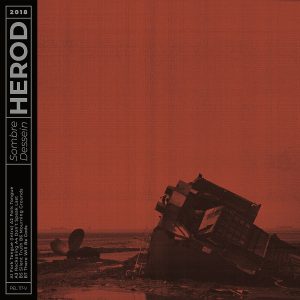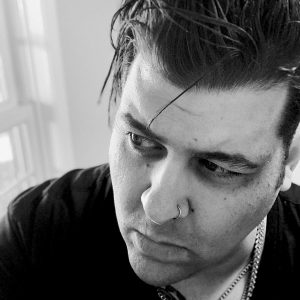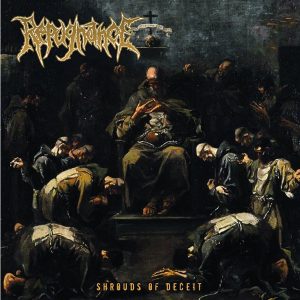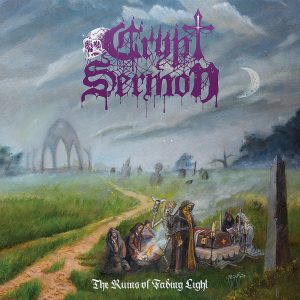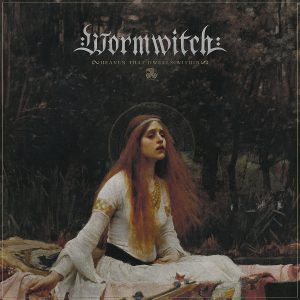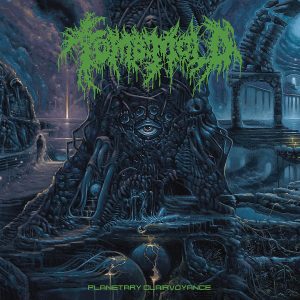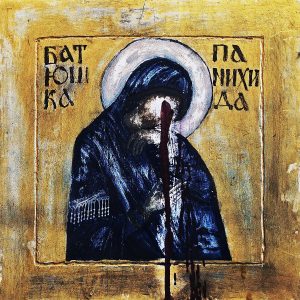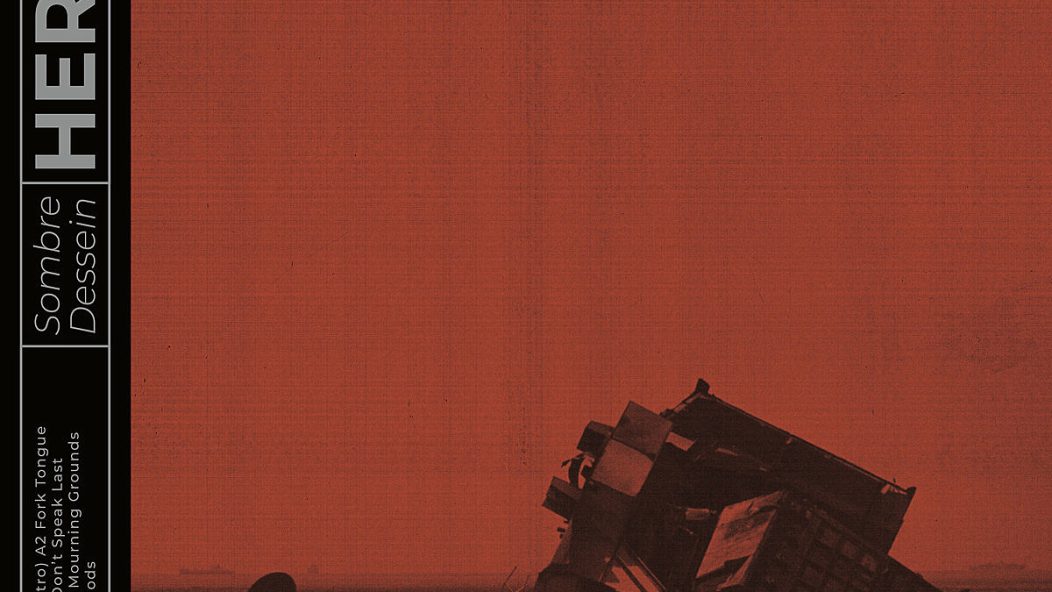
Chris Butler's Top Albums of 2019
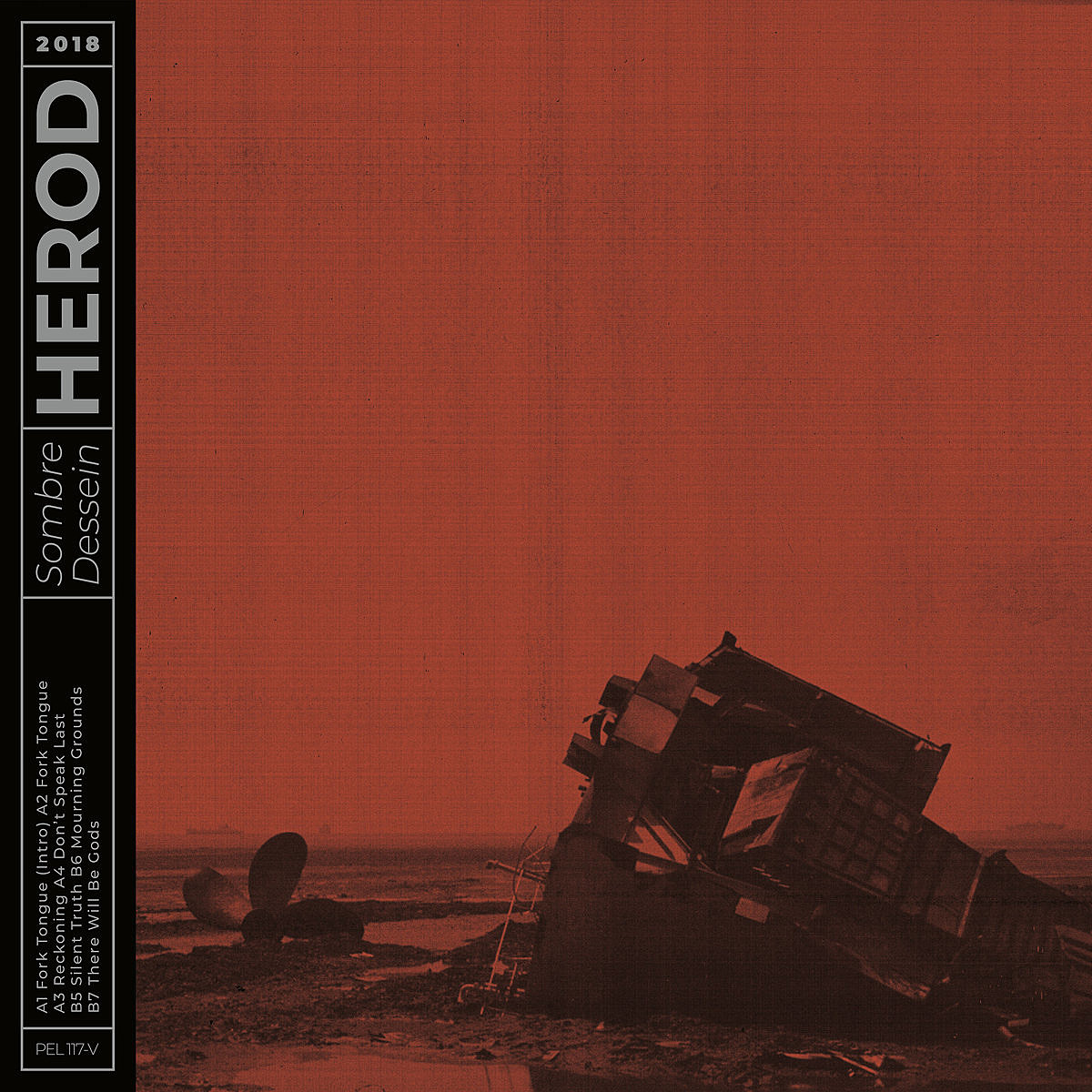
…
Despite the wealth of treasures the metal gods regularly gift us with, it can be challenging for me to come up with a list of ten records that I really enjoy in a given year. Sometimes, some records make it into my best of the year lists that I don’t keep listening to once that year is done. However, I am confident that will not be the case this year. I have been fully immersed in my top ten of 2019. In fact, a couple of these records (Krzysztof Drabikowski’s Панихида, and Tomb Mold’s Planetary Clairvoyance) have made my top twenty albums of the decade list. The 2010s have had some truly excellent years, but along with 2013, I believe 2019 will go down as one of the best years for metal ever.
— Chris Butler
…
Honorable Mentions
Pulchra Morte – Divina Autem Et Aniles (Ceremonial, USA)
Organectomy – Existential Disconnect (Unique Leader, USA)
Fvneral Fvkk – Carnal Confessions (Solitude, Germany)
Obsequiae – The Palms of Sorrowed Kings (20 Buck Spin, USA)
Cattle Decapitation – Death Atlas (Metal Blade, USA)
Xoth – Interdimensional Invocations (Self Released, USA)
Blut Aus Nord – Hallucinogen (Debemur Morti, France)
Gatecreeper – Deserted (Relapse, USA)
King Gizzard & The Lizard Wizard – Infest the Rats’ Nest (Flightless, ATO, Australia)
Foxygen – Seeing Other People (Jagjaguwar, USA)
…
Herod populate Sombre Dessein with a bounty of mid-tempo romping riffs. Sludge and djent influences coalesce to form massive tunes like “Fork Tongue” and “Reckoning.” The emphasis here is on groove over technicality, and the key to making it all work is space. No instrument takes precedence over another. If the guitarists are playing a complex riff, the drums focus on keeping a steady backbeat; if the vocals are singing a hook, the guitars retreat and provide a foundation for the melody. Intentionally or not, this ethic of selflessness is reflective of the core message of the album. If humanity can learn to work together as effectively as the members of Herod do on Sombre Dessein, perhaps we can prevent the cataclysmic future the record predicts.
Rawness and pain go hand in hand on Broken Play. The hardcore vocal delivery on this album helps it transcend black metal. It still has blast beats and somber lo-fi guitar melodies, but it displays a level of earnestness that so much black metal intentionally lacks. This album is not for cosplaying as a satanist in the woods. Broken Play is for dealing with your shit.
Shrouds of Deceit sports my favorite album art of the year. Repugnance’s brand of unapologetic brutal death metal is like comfort food. It’s heavy, punchy, groovy, and brutal, yet for all the technicality required to pull off this style, the performances manage to be refreshingly loose without becoming sloppy. This makes the album feel like a live set instead of a recording. On this release, honesty trumps innovation.
Brooks Wilson is one hell of a lyricist. Lyricism is the easiest element for a metal band to neglect, but stories are front and center on The Ruins of Fading Light. “Our Reverend’s Grave” paints a picture filled with religious imagery that is sold by an equally exceptional vocal performance. The lead single, “Key of Solomon,” contains a criminally catchy chorus and old-school heavy metal guitar worship sure to please metal fans nostalgic for the glory days of the genre. The crossover potential for a band as campy as Crypt Sermon is unexpected, but growing with each release.
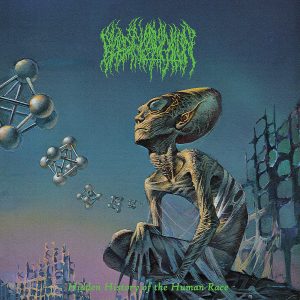
Hidden History of the Human Race is a step in a big new direction for Blood Incantation. Their first record, Starspawn, looked to the stars conceptually, but their sound had yet to reach those distant celestial bodies. Though Blood Incantation’s death metal remains as pummeling as it was earlier on, the fresh new Eastern-sounding psychedelic sections on tunes like “The Giza Power Plant” are what propel this album into the stratosphere. What makes these sections work is the brilliant drumming of Isaac Faulk, who expertly stops and starts his furious double-kick attack on a hairpin throughout the album. Blood Incantation have crafted a complex and consistently interesting chunk of death metal on Hidden History of the Human Race. They deserve the hype.
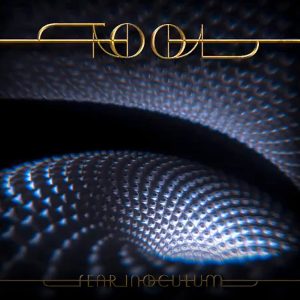
“Naive, I opened up to you, venom and mania.” These are the lyrics for the modern age if ever there were any. It took them 13 years, but Tool managed to release an album that sounds like now. By emphasizing vibe over hooks, Fear Inoculum transforms each song into a meditative journey. “Pneuma” alone is worth the 13-year wait, and ranks within the top ten songs of Tool’s discography. New spiritual awakenings accompanied by new despondencies, this album is perfect for those willing to ruminate on themselves.
Wormwitch perfectly blend grating black metal chords with killer thrash riffs on Heaven That Dwells Within. This band knows exactly when to change pace. Just when a song threatens to become monotonous, Wormwitch break out a grooving thrash riff or acoustic guitar break to catch listeners off guard. Check out the chorus riff to the title track, which is one of the chunkiest guitar parts of the year, or the beginning of “Two Wolves” as examples. This is a fantastic album front-to-back with gorgeous album artwork to match.
Par le Sang Versé is a fun record. Medieval black metal can be a pretentious affair, but Véhémence make sure to pepper their songs with hooks in a multitude of forms. The track “La Sorcière du Bois Lunerive” alone includes a tranquil nylon-string acoustic guitar section, tribal drumming, dueling electric guitar harmonies, and clean chants. This is one of the most thrilling songs of the year with a climax that will have you pumping your fists with joy. “La Sorcière du Bois Lunerive,” and the album as a whole, conjure a feeling of elation rather than rage. The layman may call black metal “angry” music, but Véhémence doth protest. Par le Sang Versé proves thou needn’t be rageful to make a superb black metal album.
Tomb Mold bring the weird and heavy on Planetary Clairvoyance. Their most cohesive effort to date sports vastly improved production: the detuned guitars are organically massive with a low end punch you can feel in your gut. The unwavering deep vocal delivery combines with killer riffs to create one of the heaviest sounding death metal records money can buy. Planetary Clairvoyance perfectly captures Tomb Mold’s live sound. But it’s not just the sound of the record that is superb; the technicality of tunes like “Accelerative Phenomenae” and “Cerulean Salvation” cannot be missed and is complimented nicely by some bizarre guitar passages at the end of “Beg for Life.” This album is a modern death metal gem with enough elements of classic death metal, modern death metal, and avant-garde to please any fan of the subgenre.
Krzysztof Drabikowski sounds like a man on fire on Панихида. At this point, most everyone should be familiar with the drama surrounding the tale of two Batushkas after the release of the band’s first album. Fortunately for Drabikowski’s version of the band, the result of the arms race between the Batushkas is a record of savage immediacy.
There was no time for Drabikowski to overcook Панихида as he rushed to finish it before the officially named and Metal Blade backed Batushka released Hospodi. Thus, a nastier and catchier album was born. Панихида rips and rocks front-to-back. The tremolo-picked guitar melodies worm their way into your head, and the trademark hymn chanting is used sparsely enough to remain fresh. These elements, along with a savage and varied vocal performance by singer-unknown and composition-conscious drumming, congeal into a superbly satisfying and unique record.
Regardless of the outcome of the Batushka war, Панихида delivers the most compelling metal album of the year backed by the equally compelling story of a man and the metal project that got away from him.
